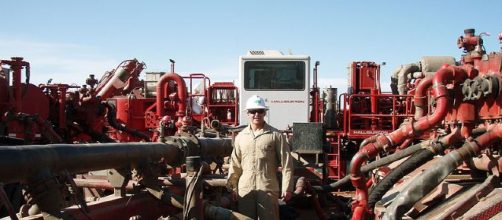hydraulic fracturing, also known as fracking, was born in the US and it has since spread around the world. It is a drilling technique that Oil And Gas producers have been using to extract the hydrocarbon resources from shale rocks. According to researchers from the US energy sector, fracking is a great option to assure energy independence during some years. However, some countries have been debating about the use of this technique because the evidence points out that hydraulic fracturing could have a negative effect on the environment.
As the article written by Adam Vaughan explains, hydraulic fracturing uses high-pressure water to create fractures in the shale rocks which contain gas and oil.
Once both oil and gas have been extracted, a new fracking well is drilled in order to keep production going. Although the process does not sound complicated, it involves complex interactions with the environment that are not completely clear yet. The problem is that the governments are more concerned about the energy supply than the implications that it could have in the future.
Coming up next you will see in this article some of the concerns that have been associated directly with this practice.
Water contamination
A couple of years ago the first investigations about fracking starting to show the effect that this practice has on the environment, especially on drinking water sources. According to some studies, the use of high-pressure water permits the filtration of chemicals in groundwater and drinking water wells.
This fact affects some animal species, but also the people who consume the contaminated water. For example, one of the pollutants that has been detected in drinking water is methanol which can cause blindness and neurological diseases.
Air pollution
The greenhouse effect is a world issue that scientists have been studying since it was described in 1901 as a potential risk to the mankind. Currently, hydraulic fracturing has been implicated in the production of greenhouse gases where methane is the most important of them. This gas comes from the extraction process and its release into the atmosphere causes a greater effect on the global warming than the one produced by the carbon dioxide.
Landscape impact
The creation and development of a fracking station is a complex process which requires the modification of the area where this takes place. In countries where hydraulic fracturing is performed ti has been observed that the ecosystem destruction comes along with biodiversity loss.
Seismic activity
According to some geologists and the records from the National Earthquake Information Center (NEIC), hydraulic fracturing is able to trigger small earthquakes due to the impact produced during the drilling process. This fact represents a risk that needs to be studied to prevent future catastrophes.


